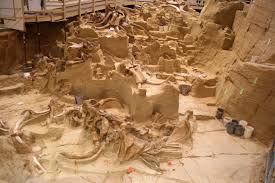 The search for life outside of our planet has always been a fascinating one. From speculations about our own moon to the remnants of water sitting on a dusty Mars, humans have been curious about this possibility for centuries. However, a new contender has entered the running in the hunt for extraterrestrial forms: Titan, one of Saturn’s many moons.
The search for life outside of our planet has always been a fascinating one. From speculations about our own moon to the remnants of water sitting on a dusty Mars, humans have been curious about this possibility for centuries. However, a new contender has entered the running in the hunt for extraterrestrial forms: Titan, one of Saturn’s many moons.
According to Space.com’s article on the subject, Titan possibly contains another key ingredient for life. The ingredient? Vinyl cyanide molecules. The name sounds strange, but astrobiologists say that these atmospheric molecules could potentially form membranes around cells floating in Titan’s liquid-hydrocarbon seas. Since there are already complex carbon-based organic compounds on this moon, the seas themselves have been dubbed as highly likely environments for life to take shape.
This life, however, would be vastly different from the life we are used to. Cell membranes on Earth consist of lipids, which are fatty molecules. Given that Titan contains a hydrocarbon-based weather system and has an average surface temperature of minus 290 degrees Fahrenheit (minus 180 degrees Celsius), lipids would have no chance of surviving Titan’s harsh conditions. However, as we know, life has a strange way of adapting, and further study suggests it may have already done just that.
In this new study, data collected by the Atacama Large Millimeter/submillimeter Array (ALMA) detected large amounts of vinyl cyanide. After doing some data and computer modeling work, ALMA suggests that “enough vinyl cyanide has made its way down into Titan’s seas to form about 10 million membranes per cubic centimeter of liquid”. In contrast, Earth’s coastal seas contain only about 1 million bacteria per cubic centimeter of water.
While that number is quite impressive, scientists say it should be taken as a rough estimate. It’s hard to pin down exact numbers, as many aspects of Titan are still unknown. Even with mysteries abound, though, this study has further cracked the mystery of life outside of our own, as well as given us a better idea of Titan’s composition and the reactions within it.











